When we chase the green garden of our dreams, whether it is charming flowers, lush vegetables or delicious fruits, it can make us happy. With them, however, come all manner of little guests from nature, who either stealthily steal the fruits of your labor or unashamedly destroy the fabric of your garden. Animal abuse such as hares, deer, small animals and birds can be a headache. Fortunately, in a world full of wisdom, there are many clever ways to protect your plant-bed garden from these cute but troublesome little guys. This article will detail some practical strategies to help you create a peaceful, thriving garden and live in harmony with nature. Let's uncover the mystery of how to protect the raised bed garden from animals. :
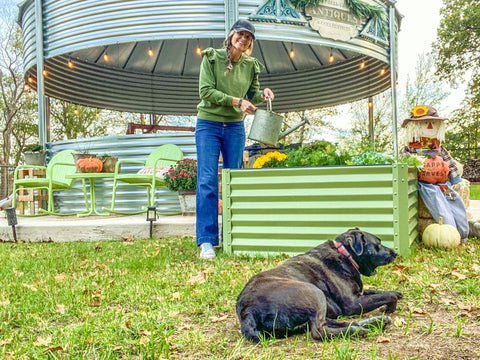
1. Challenges of animal abuse:
Animal abuse can come from a variety of sources, such as hares, deer, small animals, and birds. They may eat your plants, dig up the soil, or even damage the structure of your garden. Understanding the behaviors and preferences of different animals is an important step in developing conservation strategies.
2. Physical barriers:
Utilizing physical barriers is an effective way to keep animals out of your plant-bed garden. Install a mesh fence of the appropriate height to ensure that the fence is buried in the ground to prevent animals from digging. Alternatively, you can use a bird net or mesh cover that covers the planting bed to prevent birds and other small animals from damaging your crops.
3. Traps and detergents:
Setting traps can help you catch and release small animals that invade your garden. However, make sure you use humane and legal trapping methods. In addition, the use of sound, light and taste to repel animals is also a viable method. For example, placing organic bars of soap, chili powder, or coffee grounds gives off an odor that is threatening to animals.
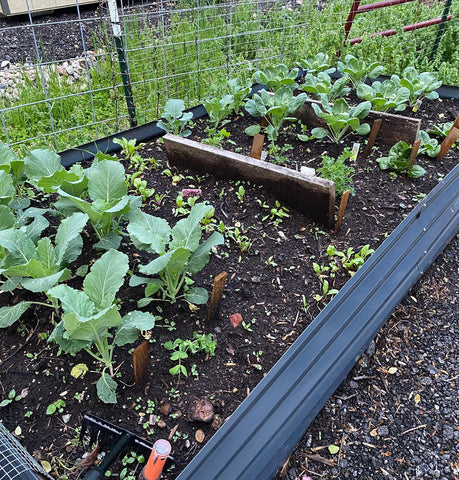
.4. Plant selection:
Choose plant varieties that are not easily eaten by animals in your plant-bed garden. Some plants have a strong smell or taste that can fend off animal interest. For example, plants such as lavender, rosemary, and Onions have a deterrent effect on certain animals.
5. Application of smell and taste:
Take advantage of the smell and taste characteristics of animals and take steps to keep them away from your garden. For example, scatter substances such as paprika, garlic, screamers, or turtle essence. These smells and tastes will keep animals away from your plant-bed garden.
6. Introduction of beneficial animals:
Introduce some predators, such as snakes, cats, dogs, and insects, to help control the population of harmful animals. For example, cats can help control the population of mice and other small animals, thereby reducing their encroachment on your garden.
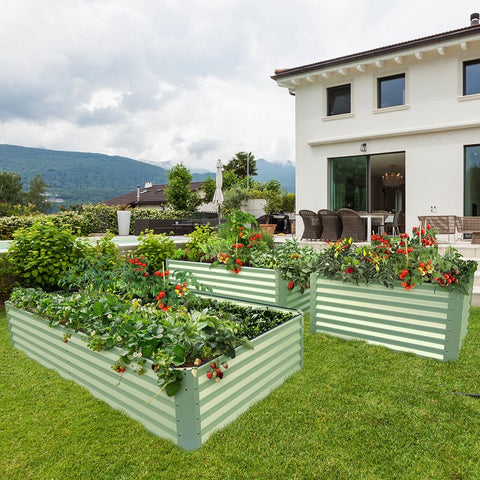
7. Night protection:
Animals are more likely to be destructive at night. Setting up night lights or sound devices around your planting bed can scare away animals that try to invade your garden.
8. Keep it clean:
Keep the environment around the garden clean and tidy, and remove food and shelter that may attract animals. This reduces the incentive for animals to enter the garden.
9. Check regularly:
Check your garden regularly for signs of animal activity. If a problem is found, act quickly to avoid further damage.
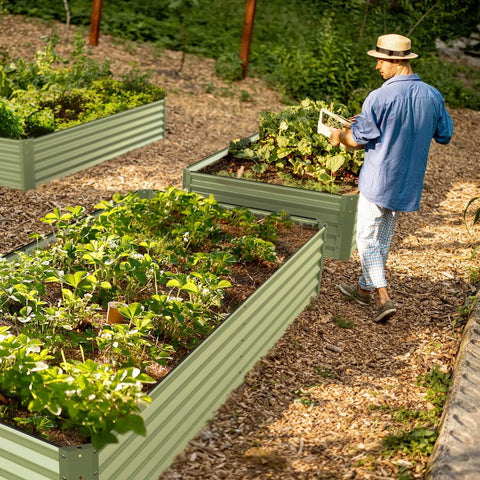
10. Community sharing and experience exchange:
Join a local community gardening group or online forum to share animal protection tips and advice with other experienced gardeners. They may have some practical tips and tricks.
11. Sustainable and eco-friendly methods:
When protecting your garden, consider using sustainable and eco-friendly methods to ensure there is no negative impact on the environment. Avoid using harmful chemicals or methods.
There is wisdom, creativity and care in protecting your plant-bed garden from animals. By taking the proper measures, you can create a safe, peaceful garden environment where plants thrive and are pleasing to the eye. Remember, every animal has its ecological role and conservation is just as important as balance. In practice, you may need to keep trying and adjusting different methods to adapt to different seasons and animal changes.
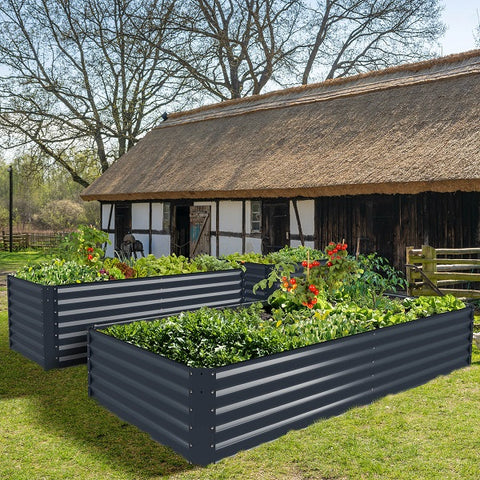
In the meantime, don't forget to share your experience and knowledge and talk to other garden enthusiasts about more protection strategies. In local community gardening groups or online forums, you can meet like-minded people and work together to solve the challenges of growing.
Together, let's use wisdom and creativity to protect the beauty and tranquility of the garden, while also remaining in harmony with nature. Whether it is to welcome the bloom of early spring or to welcome the harvest of golden autumn, your planted bed garden will become a corner of you and nature, full of vitality and joy. Let us work together to lay a solid foundation for the future flower season!









